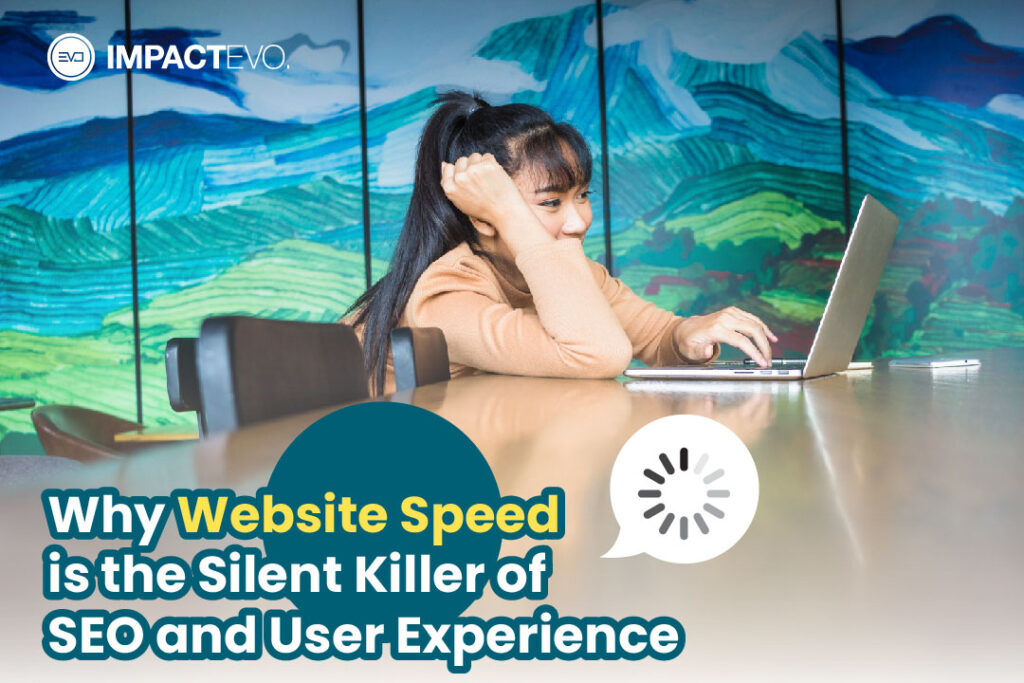In the fast-paced digital world, every second counts. Website speed plays a crucial role in how search engines rank your site and how users interact with it. A slow-loading website can drive away visitors, hurt your rankings, and cost you conversions. Let’s explore how website speed impacts SEO and user experience and what you can do to improve it.
1. Website Speed and SEO: A Direct Connection
Why Speed Matters for SEO:
Search engines like Google prioritize websites that offer fast, seamless experiences.
Key Impacts on SEO:
- Google’s Core Web Vitals: Speed metrics, such as Largest Contentful Paint (LCP), are now ranking factors.
- Crawl Budget: Faster-loading websites are easier for search engine bots to crawl, helping with indexing.
- Bounce Rate: High bounce rates from slow sites signal poor user experience, negatively impacting rankings.
💡 Pro Tip: Use tools like Google PageSpeed Insights to identify and fix speed issues affecting your SEO.
2. The User Experience Factor
Why Speed Matters for Users:
Today’s users expect websites to load instantly—delays lead to frustration and lost trust.
Key Impacts on User Experience:
- First Impressions: 53% of mobile users leave a site if it takes longer than 3 seconds to load.
- Engagement: Slow websites lead to lower engagement rates, with users spending less time on your site.
- Conversions: A 1-second delay in page load time can reduce conversions by up to 7%.
💡 Pro Tip: Optimize for mobile-first users, as they account for a significant portion of traffic.
3. The Relationship Between Speed, SEO, and Revenue
How It All Connects:
- SEO Drives Traffic: Higher rankings mean more visibility and visitors.
- Speed Drives Engagement: Faster sites keep users browsing longer.
- Engagement Drives Conversions: Positive user experiences lead to higher conversion rates.
💡 Pro Tip: Combine speed optimizations with strong CTAs to maximize conversions.
4. Common Causes of Slow Website Speeds
What to Watch Out For:
- Large Image Files: Uncompressed images can drastically slow load times.
- Unoptimized Code: Bloated HTML, CSS, or JavaScript can hinder performance.
- Server Issues: Low-quality hosting services can lead to slow response times.
- Excessive Plugins: Too many plugins, especially poorly coded ones, can bog down your site.
💡 Pro Tip: Regularly audit your website to identify performance bottlenecks.
5. How to Improve Website Speed
Essential Steps to Take:
1. Optimize Images:
- Use tools like TinyPNG to compress image sizes without sacrificing quality.
- Implement modern formats like WebP for faster load times.
2. Minimize Code:
- Minify HTML, CSS, and JavaScript to reduce file sizes.
- Use asynchronous loading to prioritize essential elements.
3. Use a Content Delivery Network (CDN):
- Distribute content across servers worldwide to ensure faster delivery.
4. Leverage Browser Caching:
- Enable caching to store site data locally on users’ devices, reducing load times for repeat visitors.
5. Upgrade Hosting:
- Invest in high-quality hosting with fast server response times.
💡 Pro Tip: Use tools like GTmetrix and Pingdom to monitor your website speed and track improvements.
6. Mobile Optimization: A Must in 2025
Why Mobile Matters:
Mobile users account for the majority of internet traffic, and their expectations for speed are higher than ever.
Mobile Optimization Tips:
- Use responsive web design to adapt layouts for smaller screens.
- Optimize touch elements for easy navigation.
- Test mobile speeds using Google’s Mobile-Friendly Test.
💡 Pro Tip: Prioritize mobile optimization in tandem with speed improvements to capture more traffic.
7. The Cost of a Slow Website
What You Risk Losing:
- Traffic: Lower rankings and frustrated users mean fewer visitors.
- Conversions: Potential customers leave before taking action.
- Revenue: A slow website can significantly impact your bottom line.
💡 Pro Tip: Treat website speed as an investment in both SEO and user satisfaction.
Conclusion
Website speed isn’t just a technical detail—it’s a critical factor that influences SEO, user experience, and revenue. In 2025, ensuring your website loads quickly is non-negotiable for staying competitive in the digital landscape. By optimizing for speed, you’ll improve your search rankings, keep users engaged, and boost your bottom line.
Need help speeding up your website? Contact Impact Evo today for expert solutions to enhance your site’s performance and maximize results!



